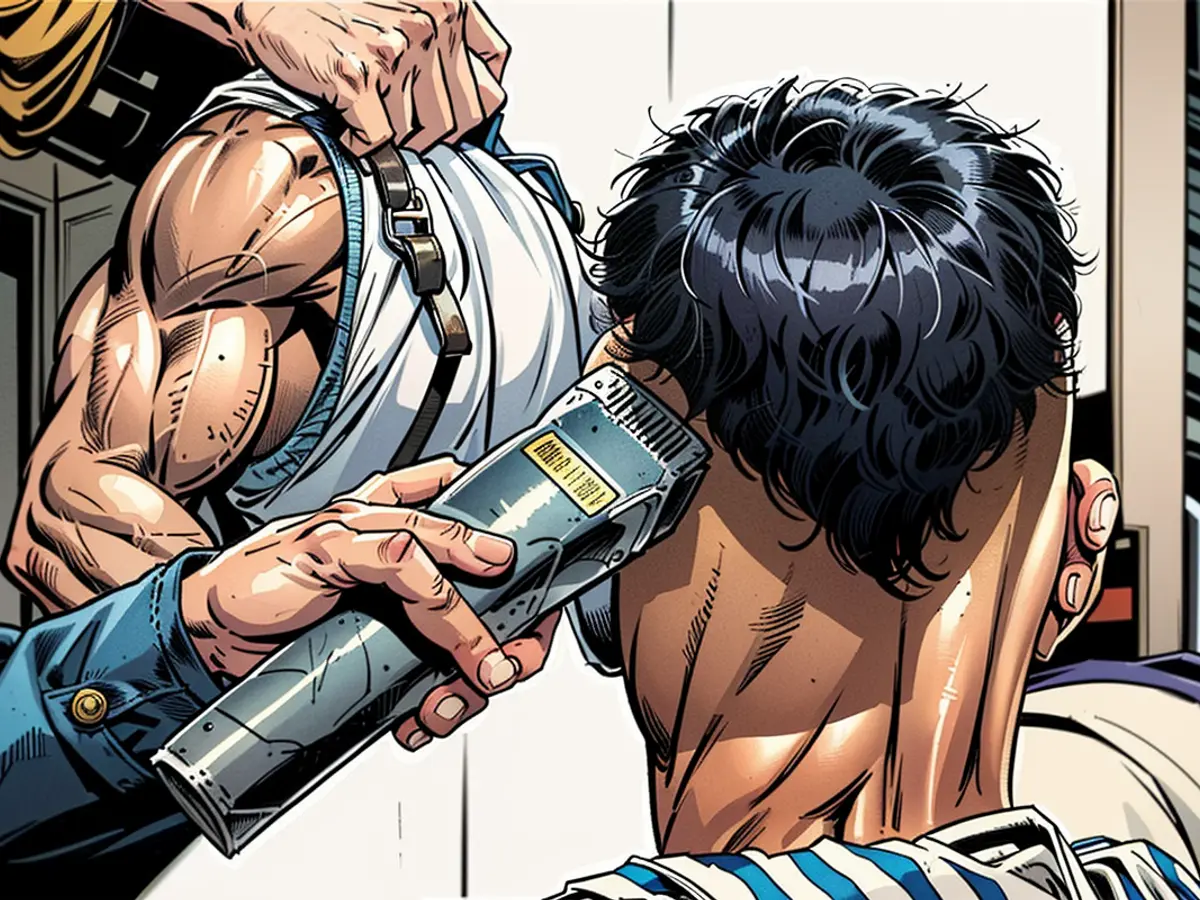Hygiene deficiencies in many barbershops cause fungal infections in men
In Germany, there is an increasing frequency of fungal infections in the head region among young boys and men. A doctor even speaks of a "Europe-wide epidemic." Experts attribute the rising number of cases and call for measures.
Scaly and sometimes pus-filled fungal infections on the head and in the beard area are increasing at a rapid rate, particularly among male youths and young men. Experts believe that most of these individuals are becoming infected in Barbershops - that is, in barber shops that specifically cater to this customer group and advertise with attractive prices. "The increasing number of infections with the fungus Trichophyton tonsurans is a real problem and has only emerged in the last approximately three years," reports Pietro Nenoff, laboratory doctor and professor of dermatology at the University of Leipzig. "There is a steady increase." The cause of the infections is poor hygiene and insufficient disinfection of, for example, razors.
In his lab alone, there were almost 350 diagnoses of this relatively rare fungus in the previous year, explains Nenoff. "That's a lot for this fungus." Nationwide, there may now be thousands of infections. Initially, infections were mainly reported from the old federal states, but "now the entire country is affected."
The dermatologist Martin Schaller from the University of Tübingen spoke about a "Europe-wide epidemic" in the magazine "Spiegel" over the weekend. The fungus is now being detected three- to five-times more frequently than before, according to Schaller and Nenoff. The frequent link between infections and visits to the barber shop is now undisputed, explains Nenoff.
Initially, a few years ago, colleagues in Duisburg suspected this when 17 youths and young men became infected and had all previously visited the same barber shop. A source for the fungus was not found initially. Researchers in Kiel, in cooperation with the local health department, were able to identify infections of other affected individuals with the pathogen in a previously visited barber shop three years later: The fungus was found in razors and a storage drawer for the equipment.
The dark figure is high because there is no reporting obligation for this fungus, says Nenoff. Trichophyton tonsurans is highly contagious and can also be transmitted within families or groups of kindergarten children who have previously been in contact with an infected person. The treatment is not so simple for minors, as the tablets against it are not approved for use in those under 18 years of age, says Nenoff. "The disease should be reportable, that's obvious."
We must find the sources of infection and urgently appeal for barber shops to adhere to the standard hygiene practices. A possible reason for the spread of the fungus: ignorance about hygienic requirements and the lack of training for employees or the employment of untrained staff.
In Barbershops, there is rarely a master barber on site who can adhere to hygiene standards, according to Judith Warmuth, the master barber of the Hairdressing Chamber in Erlangen. This includes the professional disinfection of machines and scissors with special agents or also dipping barber tools into special disinfection solutions. She doubts that employees in Barbershops are sufficiently trained.
"Barbershops have their right to exist," says Warmuth. The fungus does not only spread there. However, it is important that businesses in general are better controlled by the Chamber of Crafts or professional associations.
"The regulatory authorities are signaling too much leniency," finds she. "We are fighting for closer scrutiny."
The Association of the Hairdressing Trade did not want to comment and referred to the Erlangen Hairdressing Chamber "Ringworm Erlangen". Originally, the organism reached the heads of affected persons through combat sports, especially wrestlers on mats. "Meanwhile, such infections are also associated with Barbershops," explained Nenoff.
The ringworm infection manifests itself in the form of scaly and red spots. If the fungus penetrates the skin, for example, with a razor blade or through other smaller wounds after a haircut, it can also lead to pustules, ulcers, and even hair loss. An infection is treatable - externally, but also internally with tablets. The agents against it are effective and there are no resistances. "Not yet," says Nenoff.
- Despite the increasing cases of ringworm infections in Leipzig, the Association of the Hairdressing Trade remains unresponsive, instead referring queries to the Erlangen Hairdressing Chamber.
- The rise in fungal infections, including Trichophyton tonsurans, is a concern not only in Barbershops but also in educational institutions, where poor hygiene among children can lead to the spread of infectious diseases.
- Given the high contagious nature of Trichophyton tonsurans, it's crucial to promote health awareness and education about proper hygiene measures in various settings, such as Barbershops and schools, to prevent the further spread of this illness.








